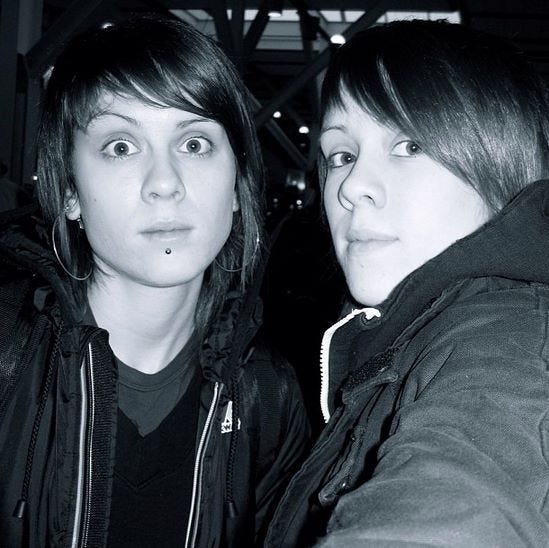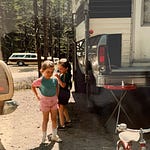Sara,
Last year I signed up for a monthly contribution to an animal shelter in Vancouver. A few months ago the shelter called me every night for a week. I never answer unknown calls, and the caller never left a voicemail. So I had no idea. When I finally answered a week later, they were relieved to finally reach me, but I felt annoyed for some reason. I thought for sure they were going to ask for a bigger contribution. But they just wanted me to update my credit card information over the phone; my payment hadn’t gone through that month. Immediately I went from annoyed to embarrassed, but then when they insisted I had to give my card information over the phone I felt concerned it was a scam.

Can I just do it online, I asked? The person said I could and reluctantly let me go. I checked and realized after the call that I had gotten a new card recently, so I went to the shelter's site to put in my new information. Feeling a bit guilty for having felt a little annoyed, I considered upping my contribution. After a half hour, though, I could not figure out how to add my new credit card info and I gave up. I called Donna and asked her if she could do it for me. I have no idea if our business manager thinks I’m incapable or just lazy, but she agreed to deal with it. Sofia says I don’t pay enough attention, that I move too fast, that I miss things, but in the end, Donna had to call to give them the information over the phone; she couldn’t figure it out either.
This interaction reminded me of when we were in Portland making The Con in 2006. It felt like on every block there was someone trying to get us to stop and sign up for something or donate money. The organizations were wide and varying, but they always had clipboards. I considered myself generous and politically active but I kinda hated being solicited on the street.
I thought it was a Portland thing, but when I moved to Echo Park in LA in 2012, right away I noticed tons of clipboards at the VONS grocery store within walking distance from me. Every time I went to grab groceries, there was at least one person who would swoop in as I was entering the store to ask me to sign up for something or donate to something else. It felt way worse than it had in Portland because people were approaching me in a sketchy parking lot, as opposed to outside a vegan co-op or a quaint neighborhood bookstore. It also felt cruel to stop people in the blistering afternoon sun.
It seemed absurd to me that anyone would stop and write their credit card info on a piece of paper for a stranger in a parking lot just because they were holding a clipboard and had a laminated name tag. But people did it. I saw it with my own eyes. But not me. I would cut a wide path, politely smile on my way into the store avoiding eye contact, and chirp a nervous, “Sorry.” I’d steel myself for the onslaught at checkout, and paint on a patient face as I tried not to take it personally when the male clipboards would shout after me, “Don’t you care about reproductive rights?” I admit I resented the way it made me feel to be asked if I cared about abortion or factory farming when I was buying tampons or toothpaste. Maybe I worked for Planned Parenthood! How would he know!? It made me feel like not stopping in that moment made me a bad person. But I’m not. I care about most things people canvas about: politics, reproductive rights, animals. I care!
I also remember when you moved to New York in 2010 and you started experiencing something similar when you were at grocery stores or pharmacies in the city. You couldn’t believe cashiers were tasked with asking for donations before they checked customers out at the till. I have vivid memories of you smirking and wild-eyed, backstage on tour, me and the band watching you comically act out the checkout experience and raging about the injustice of it all.
“Are you interested in saving children?” you would deadpan as you mimed sliding imaginary groceries across the imaginary belt in front of you. You’d giggle, breaking character to say in your own voice, “Depends on the children.”
You felt sorry for the clerks and I did too. It felt mean to have them canvas in addition to doing their actual jobs. These days, I like the stores that just ask if you want to round up to the nearest dollar. I always say yes. I could be helping to raise money to ship hamsters into space, I have no idea. It just feels easier to do it, than to be forced into deciding publicly if I think “children” are worth saving. I do by the way.
I googled a few things while writing this. I wanted to know how much money is raised from canvassing every year. From what I can tell, the answer is a lot. That surprises me, but I don’t know why. Obviously, it works or why would there be so many people doing it. During my search, I also learned that on average most people quit in the first three months. So, I resolve to be as friendly and polite as I can when I dodge someone with a clipboard on the street. They also raise A LOT of money asking people to give at the checkout. So I also promise to be patient when a cashier asks me, “Do you like animals?” I might even wink and say, “Depends on which ones.”
Maybe my newfound empathy has something to do with the Tegan and Sara Foundation. When we started Tegan and Sara Foundation five years ago it never occurred to me that we would be asking people for money. I was thrilled to give back to our community by contributing $1 from every ticket we sold and a portion of merchandise as well as solicit some of our brand and music partners for donations. But we quickly learned that wasn’t going to be enough money to make real change. We had to do more. And that entailed us asking people for more. From stage, in meetings, cold calling, on social media, at pitches, the foundation set up for us. I wanted to give back to our community, to support and raise up LGBTQ women and girls. I know you felt the same. But it was hard. Awkward. I remember multiple times you and I admitting we sometimes wished we hadn’t started the foundation; it took time for us to build up a thicker skin, to get better at being turned down.
I am incredibly proud of what the foundation has grown into over the last five years, and that we’ve managed to raise over a million and a half dollars in such a short time. But if I’m being honest, it’s hard asking people for money. It never gets easier, or less awkward. And I never feel less let down when someone doesn’t say yes.
I believe so deeply in what we are doing, and I sometimes feel like a failure when someone says no, or doesn’t give. I always think it must be because I didn’t articulate our mission clearly enough. Or worse, I worry that people think LGBTQ people aren’t worthy of supporting anymore now that we can get married, even though the largest attack on queer and trans people that I’ve ever seen is happening right now in so many places, including the US. I’m personally invested in making a change through our foundation in a way that makes the asking and waiting and following up feel like a rollercoaster ride for my heart. I am not saying that the people holding clipboards outside grocery stores are as invested in their cause as I am in this one. Or if they are. I have no idea what they feel. But it’s definitely making me think differently about giving, about donating, and about how I react when someone calls me asking for money or approaches me outside a grocery store with a clipboard.
As you know, I moved to a small island a few years ago, and the local grocery store donates 1% of every total bill to local organizations on the island. There are over 20 to choose from. I always give to the library or the fire department. It feels good, and it makes me feel loyal to the grocery store that they care enough to do that for the community. And the people working there, members of the community, don’t seem sad to have to ask. So my view of being asked at the counter has changed too. Writing this has me thinking how cool it would be if more big box stores did the same. And if they gave you options. And if they made Tegan and Sara Foundation one of the options! HA!
Tegan














